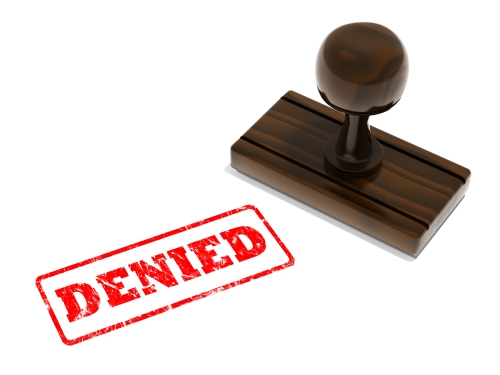“ChromaDex told the Supreme Court the [Federal Circuit] decision ‘threatens to chill innovation across the biotechnology sector.’”
 The U.S. Supreme Court on Monday denied certiorari to review a February ruling of the U.S. Court of Appeals for the Federal Circuit (CAFC) that held claims of ChromaDex, Inc.’s patent on an isolated form of vitamin B3 are directed to unpatentable subject matter under Section 101.
The U.S. Supreme Court on Monday denied certiorari to review a February ruling of the U.S. Court of Appeals for the Federal Circuit (CAFC) that held claims of ChromaDex, Inc.’s patent on an isolated form of vitamin B3 are directed to unpatentable subject matter under Section 101.
The CAFC affirmed the Delaware district court’s grant of summary judgment for Elysium Health that the relevant claims of U.S. Patent No. 8,197,807, titled “Nicotinamide riboside kinase compositions and methods for using the same,” were invalid under Section 101 as being directed to a natural phenomenon, specifically, “compositions comprising isolated [NR], a naturally occurring vitamin present in cow milk.”
Nicotinamide riboside (NR) is a form of vitamin B3 that is naturally present in cow’s milk. The invention covers a composition containing isolated NR that results in increased biosynthesis of the coenzyme nicotinamide adenine dinucleotide (NAD+) upon oral administration.
In its petition to the Supreme Court, ChromaDex said the CAFC panel broke with its own precedent and created a split within its own court when it failed to apply the two-step Alice/Mayo test to its patent claims, instead applying “the standard derived from Association for Molecular Pathology v. Myriad Genetics, Inc., 569 U.S. 576 (2013), which omits consideration of whether a patent involves an ‘inventive concept.’” ChromaDex said the decision “threatens to chill innovation across the biotechnology sector.”
According to the petition, if the Federal Circuit had applied Alice/Mayo, it would have found that it had an inventive concept at step two, since the patent “claims a new and useful application of NR—by isolating it and formulating it for oral administration.” However, the panel agreed with the U.S. District Court for the District of Delaware that the claims are directed to a product of nature under Myriad and Diamond v. Chakrabarty. “As in Myriad, under the circumstances presented here, the act of isolating the NR compared to how NR naturally exists in milk is not sufficient, on its own, to confer patent eligibility,” wrote the court. The proper inquiry was defined in Chakrabarty, the opinion continued, where the Supreme Court said that, “to be patentable, the claimed composition must ‘ha[ve] markedly different characteristics and have the potential for significant utility.’” But naturally occurring NR in milk increases NAD+ biosynthesis when taken orally, just like the claimed invention.
The Federal Circuit further explained that, while addressing Alice/Mayo wasn’t even necessary here, the two-step test doesn’t save the claims anyway:
“[I]f resort to Alice/Mayo is necessary, then at step one we conclude the asserted claims are directed to a product of nature for the reasons stated above, and at step two the claims lack an inventive step because they are directed to nothing more than compositions that increase NAD+ bio-synthesis, which is the very natural principle that renders the claims patent-ineligible.”
Speaking yesterday at IPWatchdog’s Life Sciences Masters program taking place this week, Sherry Knowles of Knowles IP Strategies said the Myriad decision has had dire unintended consequences for isolated natural products, which include drugs as foundational as aspirin. Patents for such products are an “extinct dinosaur,” said Knowles. “Venture capitalists will not invest in companies with isolated natural products. Those are drugs of the past; we’re never going to have drugs like that again.”

![[IPWatchdog Logo]](https://ipwatchdog.com/wp-content/themes/IPWatchdog%20-%202023/assets/images/temp/logo-small@2x.png)

![[Advertisement]](https://ipwatchdog.com/wp-content/uploads/2024/04/UnitedLex-May-2-2024-sidebar-700x500-1.jpg)
![[Advertisement]](https://ipwatchdog.com/wp-content/uploads/2024/04/Artificial-Intelligence-2024-REPLAY-sidebar-700x500-corrected.jpg)
![[Advertisement]](https://ipwatchdog.com/wp-content/uploads/2024/04/Patent-Litigation-Masters-2024-sidebar-700x500-1.jpg)

![[Advertisement]](https://ipwatchdog.com/wp-content/uploads/2021/12/WEBINAR-336-x-280-px.png)
![[Advertisement]](https://ipwatchdog.com/wp-content/uploads/2021/12/2021-Patent-Practice-on-Demand-recorded-Feb-2021-336-x-280.jpg)
![[Advertisement]](https://ipwatchdog.com/wp-content/uploads/2021/12/Ad-4-The-Invent-Patent-System™.png)






Join the Discussion
6 comments so far.
Geffrey Bowe
November 13, 2023 04:39 amIn the tech world, we face similar challenges with patent eligibility. This case highlights the importance of having a consistent framework. The uncertainty could deter investors and slow down progress in vital fields like biotechnology. I’ve found that my Vitamin B complex supplement helps me stay sharp and focused.
B
October 18, 2023 01:11 pm@ concerned “I watched two “Law and Order” episodes yesterday that reminded me of patent prosecution.”
Your legal knowedge therefore exeeds that of half the Federal Circuit.
B
October 18, 2023 01:07 pmThe CAFC decision was by Stoll, Chen, and Prost. The patent holder had no chance with these 3rd-rate intellects in charge.
That said, the Supreme Court isn’t interested in clarity. In fact, they are committed to an unconstitutional swamp of confusion.
concerned
October 18, 2023 05:05 amI watched two “Law and Order” episodes yesterday that reminded me of patent prosecution.
Salvage: McCoy successfully a death penalty appeal by arguing “the constitution cannot prohibit what the constitution specifically includes.” I submit neither can SCOTUS and the lower courts.
Jeopardy: A judge is discovered taking bribes due to his inconsistent rulings. McCoy overcame double jeopardy by arguing “jeopardy never attached as the trail was rigged.”
I have no idea why these two episodes remind me of patents, but I like the television version of justice.
Pro Say
October 17, 2023 03:36 pmJurisIMprudence. Yet again.
Model 101
October 17, 2023 02:17 pmMore crook stuff